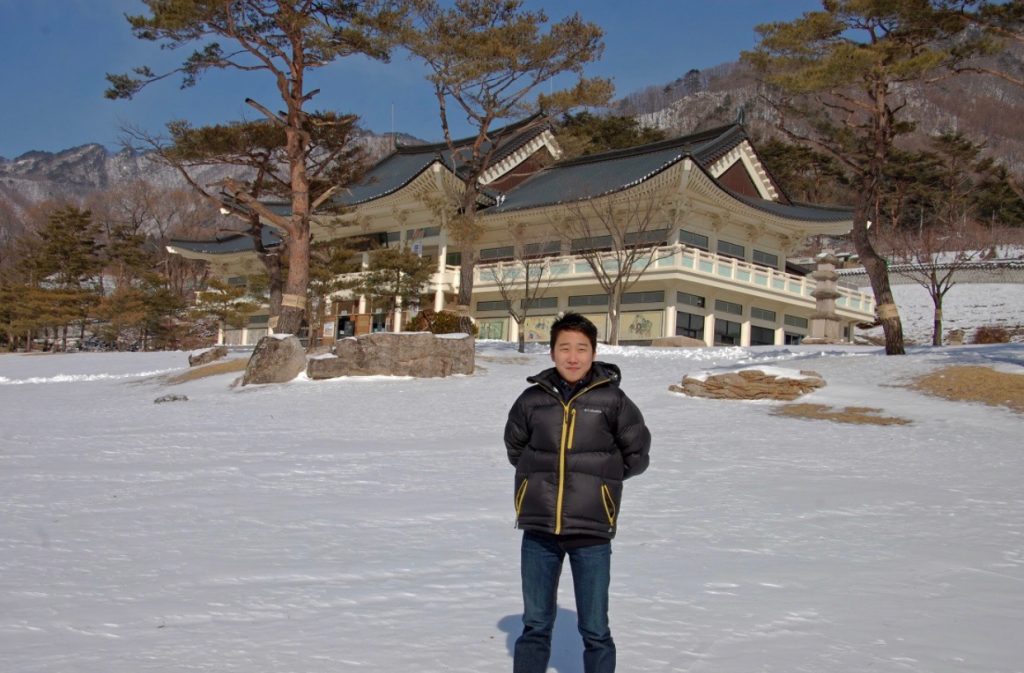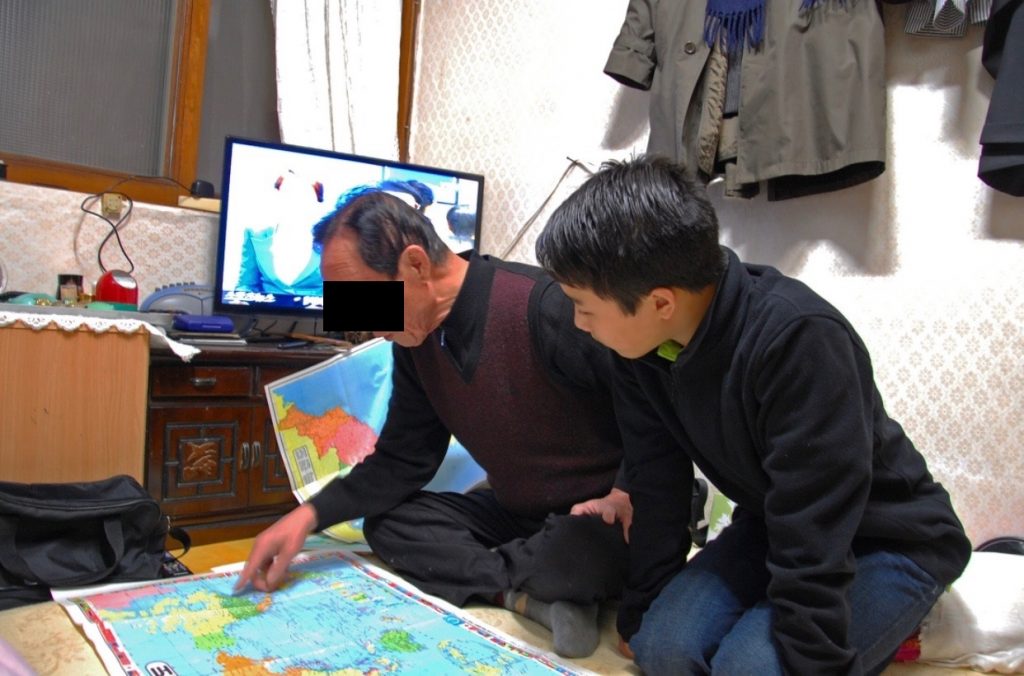Joseph Choi was young when he realized people would start treating him differently because of his race. I interviewed Joseph, my roommate, to listen to his experiences while growing up. Joseph was born in Fort Lauderdale, Florida at the turn of the century. His parents are from South Korea, and as a Korean-American, Joseph faced racism at a young age. Before Joseph went to school, he did not know how society treated someone who was different. He would eventually learn what racism is. When Joseph was old enough for school, he faced racism in every grade level.

In early elementary school, Joseph experienced small acts of racism, such as name-calling. Towards his later elementary career, he encountered stronger acts of racism. He never experienced a situation that was violent but I learned that he did experience racism first hand. When I asked him about any specific acts of violence or racism in elementary school, he told me about one particular story that stuck in his head. He responded, “Well, I’ve never had, in a sense, a violent case. More like little ruffles here and there. I’ve always surrounded myself with a good group of people. Um, making sure I have a good group of friends who support me not because of how I look or how I act, just depending on how good of character that I have.” This showed me that Joseph’s experiences with small acts of racism shaped the group of people he could call friends. He continued, “but I think back in elementary, probably fourth or fifth grade. I was standing in line to use the restroom because we had the restroom schedule where everyone goes at the same time before recess or something. And I was standing in line to use the urinal and this one kid cuts in front of me and I was like, hey that’s not cool, and then he turns around and slaps me” (6:48). While listening to this, I realized how I never had to deal with this in the fourth or fifth grade. Even though it wasn’t violent, this experience stuck in Joseph’s head because of how young he was. Joseph continued by saying how the boy “slaps me and calls me a racial slur. Uh, that slur being c***k. However, as you know, I am not Chinese” (6:48). This was interesting because as a kid, Joseph was already being called names. Joseph thought it was a little amusing because the kid did not even use the right racial slur. In reference to this situation, I asked him, “why do you think people act this way towards you?” (7:38). He replied, “It goes back to the thing of just how I look different, people feel like because they’re the majority they can treat me differently, whether it’s worse or in the rare case, better. They feel like they have because they’re the majority they have the ability to get everyone on their side, rather than on my side” (7:53). By the tone at which Joseph told me this, I believe Joseph understood that at a young age. He realized that some people would treat him differently just because he looks different on the outside.

Mercer Deatz, Joseph visitng with a relative, South Korea, 2014, All rights reserved.
As Joseph grew up, he experienced fewer acts of racism, but he still had to deal with other people stereotyping him. He mentioned that he still faces that problem today. When I asked him what his biggest challenge is, he told me, “Uh, the biggest challenge I still face today. Um, living up to expectation. Uh, everyone knows the Asians are supposed to become or be the smart ones” (15:12). I wondered if he has close friends that stereotype him, so I asked, “Do you still have close friends that like, maybe stereotype you in school?” (16:02). And he responded, “Oh yeah. I have a lot of friends like that, it’s mostly joking. I just brush it off because I don’t really care. But it’s kind of funny because they’re always like, Joseph, where’s your 4.0, and I’m like, well I don’t know man. I think a 3.8 is good” (16:10). I think it is safe to say that Joseph is affected by people who stereotype him. But he does not let it bring him down. Joseph was a swimmer in high school, and he mentioned how he did not have the stereotypical genes of a swimmer. He was not gifted with the long limbs of a swimmer, and he believed this left him at a disadvantage (5:34). But he put in more hard work to prove that he could not be stereotyped (6:20).

We have had stereotyping discussions in my class before. Jud Süss is a film we watched that was made in Nazi Germany. There are multiple examples of stereotyping in the film. Specifically, the stereotyping of the Jewish main character. The character is shown to have all the stereotypical Nazi character traits of a Jewish person at the time. Obviously, racism and stereotyping were involved with the Holocaust, but this film has good examples of stereotyping that relate to the modern day stereotyping that Joseph faces. In modern times, people still characterize another group of people based off a few stereotypes. That is what Joseph has had to live with.

Because Joseph seemed to worry about stereotyping throughout his life, I asked him, “what advice would you give to people in a similar situation as yourself?” (16:30). I asked that to see if he could provide help to someone just like him. Someone that gets treated differently because of their appearance. He responded, “The advice I’d give to people is no matter how hard people put you down, always stand up with your chin up. Um, because if you let them get you down, that only makes them feel higher up above you. You don’t have to be the best, you don’t have to try to be the best. What you can be is that you can be yourself. And that’s hard because like I said, I created a fake persona about me to help me become more popular, more friendly, and I can honestly say, uh, that has led to many fake friendships, and in general, just making sure that no one can bring you down no matter how hard they try” (16:38). I believe Joseph’s message to other people growing up in a similar situation is to be yourself and not let other people stereotype you. Since he mentioned that he created a fake persona, I wondered if that meant he wish he would not have done that. It sounded like he hid his true personality to blend in more and make friends. I wondered if he wished he would have been himself more, so I asked, “So would you suggest to, like, another version of yourself to be yourself more?” (17:19). He replied, “Yes and no. Because I feel like I wouldn’t have become as popular when I was younger, but at the same time I feel like I could’ve made more stronger relationships back then” (17:26). I believe Joseph is happy with his life and that is why he could not give a decisive answer to that question. I know Joseph is living just fine, but he certainly did not grow up in a perfect society for someone with a difference.

The fact that Joseph did not grow up in that good of a society, for someone in the minority, was on my mind. Joseph certainly did grow up differently than me because of his race. I wanted to know what he would change about society if he could. I asked, “How would you like people to respond to your different race, like, in a perfect world maybe?” (18:07). He thought for a second and responded, “I’d want people to treat me like they treat everyone else. Don’t think of me as different, think of me as the same level as you, the same capabilities, and the same acceptance” (18:15). I wanted to know if Joseph ever thought about how to get to this perfect world. So I followed up the question and asked, “If you could change any one thing about society, would it be like, you know, equality like that?” (18:27). He replied, “Yes, but in the society that we have currently, that is impossible. Of course, uh, I’d almost say awareness, for something actually tangible. People who actually know the hardships we’ve felt, maybe not even me, but people who go through these hardships, who go through the violence of racism. Um, I feel like if more awareness was spread, people wouldn’t act the way they act” (18:39). Joseph wants people to understand that race makes no difference to a person. Better awareness within the society is a start to end the stereotyping that Joseph grew up with.
